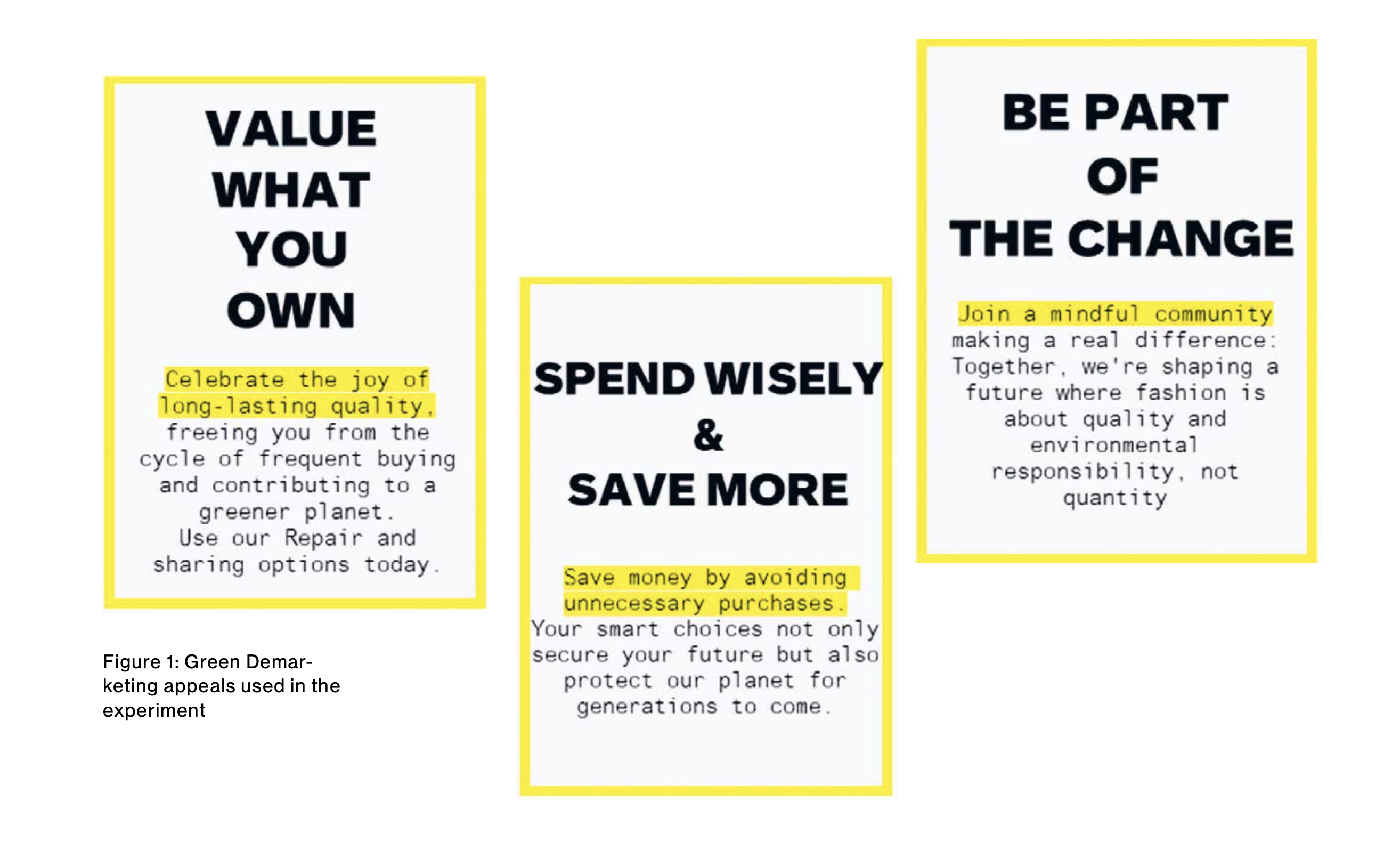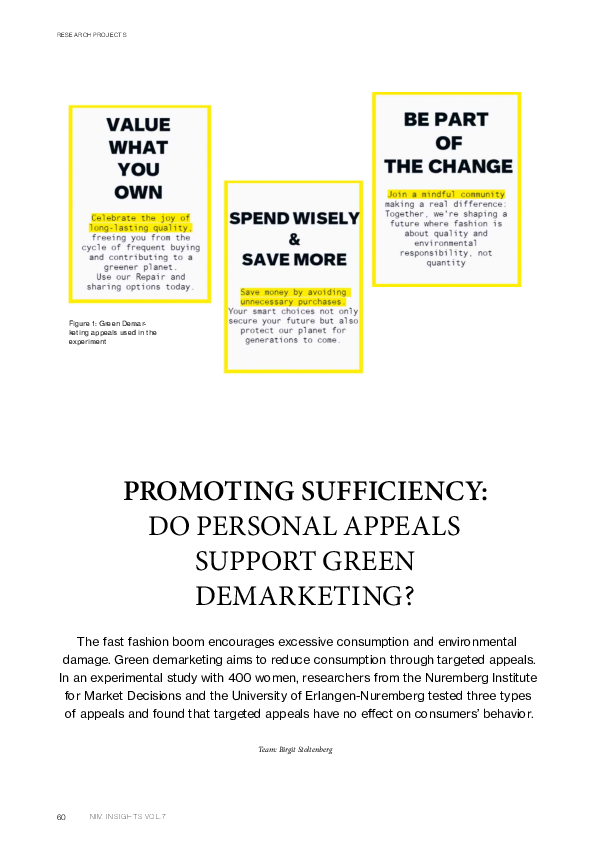Forschung
Promoting Sufficiency

The fast fashion boom encourages excessive consumption and environmental damage. Green demarketing aims to reduce consumption through targeted appeals. In an experimental study with 400 women, researchers from the Nuremberg Institute for Market Decisions and the University of Erlangen-Nuremberg tested three types of appeals and found that targeted appeals have no effect on consumers’ behavior.
The growth of fashion giants and the rise of online shopping platforms have significantly increased the availability of cheap clothing, profoundly influencing consumer behavior worldwide. Low prices, reinforced by the constant intro- duction of new collections, encourage over-consumption and a throwaway culture, contributing to serious envi- ronmental problems such as high carbon emissions, excessive water use, and vast amounts of textile waste. In addition, the use of toxic chemicals in clothing production poses potential health risks for both workers and consumers.
A promising strategy to mitigate the fashion industry’s environmental footprint is to adopt green demarketing—a marketing approach aimed at encouraging reduced consumption. "is could involve, for example, promoting the purchase of fewer but higher-quality garments with longer lifespans. From a brand perspective, green demarketing can enhance brand image, build stronger customer loyalty, and align with the growing consumer demand for sustainability. For consumers, this approach may lead to personal benefits, such as financial savings and a higher quality of life. Moreover, it supports broader environmental goals, offering societal benefits beyond individual gains.
Investigating the Impact of Green Demarketing
To explore whether green demarketing campaigns emphasizing personal benefits can influence consumer attitudes and behaviors, researchers conducted an online experiment. A sample of 400 women from the UK participated in a simulated shopping task. Participants were divided into a control group (which received no marketing appeal) and several experimental groups, each exposed to one of the green demarketing messages shown in Figure 1.
Hedonic Appeal: Highlighted the emotional satisfaction of owning long-lasting, high-quality items.
Utilitarian Appeal: Focused on personal financial savings and enhanced well-being.
Social Appeal: Emphasized collective responsibility and the societal importance of sustainability.
The effectiveness of these appeals was measured by comparing the number of items purchased by each group against the control group.
Key Findings and Implications
Contrary to existing literature suggesting that green demarketing can reduce consumption, the study found no significant change in consumer behavior across the experimental conditions. One possible explanation is that the target audience did not possess strong pro-sustainability attitudes. Surprisingly, the study also revealed that highlighting social norms—typically seen as a motivating factor—had a negative effect on consumption reduction. "is suggests that such messages may trigger resistance rather than encourage behavioral change.
These findings challenge previous research and underscore the need for a deeper understanding of how consumers perceive and respond to sustainability focused appeals. Further investigation is essential to identify the psychological and behavioral mechanisms that drive sustainable consumption.
KEY INSIGHTS
- Academia: Green demarketing appeals alone may not be enough to drive sufficient behavior change, pointing to a need for research into more complex psychological and contextual factors influencing sustainable consumption.
- Business: Companies which want to implement green demarketing strategies must go beyond surface-level sustainability messaging and embed green demarketing principles into product design.
- Consumers: Sustainability appeals do not automatically reduce consumption. Instead, personal values, habits, and context play a more decisive role, indicating the importance of personalized and relevant interventions.
- Public Policy: Policymakers should be cautious when designing sustainable consumption campaigns. In particular, messages centered on social norms may backfire, highlighting the need for nuanced, evidencebased communication strategies.
Projektteam
- Birgit Stoltenberg, Senior Researcher, NIM, birgit.stoltenberg@nim.org
Kooperationspartner
- Sophie Wieser, Technische Hochschule Nürnberg Georg Simon Ohm
- Markus Beckmann, Friedrich-Alexander University of Erlangen-Nürnberg
Kontakt

